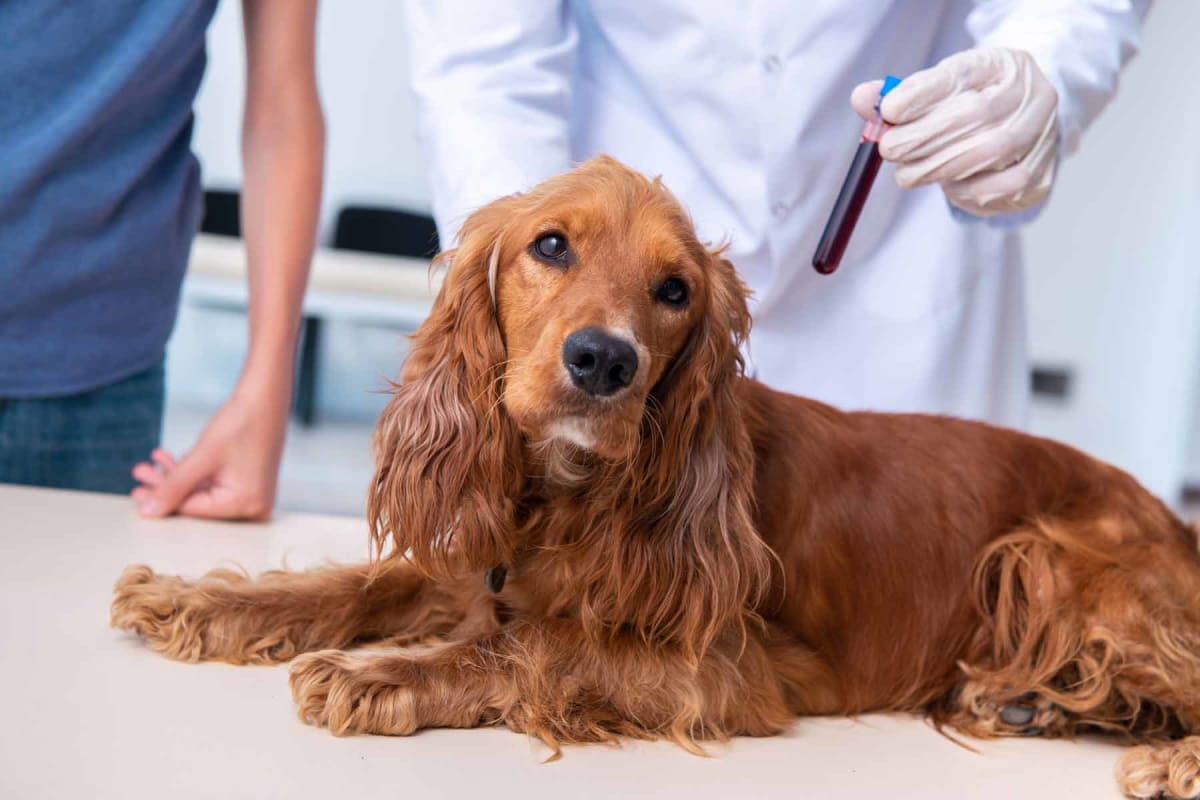
How much does dog ruptured anal-gland abscess treatment cost?
How much does dog ruptured anal-gland abscess treatment cost?
$1,000 – $2,600 average cost
Dog anus gland abscess treatment cost
Dog anus gland rupture surgery costs $1,000 to $2,000 for removal of one gland (unilateral surgery) or $1,600 to $2,600 for removal of both glands (bilateral surgery). This price typically includes a physical exam, anesthesia, surgery, and post-operative pain medication.

| Surgery type | Average cost |
|---|---|
| One gland (unilateral) | $1,000 – $2,000 |
| Both glands (bilateral) | $1,600 – $2,600 |
Dog ruptured anal gland abscess treatment
In some cases, if caught early, an abscess may be treated with antibiotics and manual expression of the glands. However, surgery is often necessary to prevent recurring problems and provide long-term relief.
The treatment process for a ruptured anal gland abscess typically involves several steps:
Initial examination and diagnosis
Antibiotics to control infection
Pain management medications
Surgical removal of the affected gland(s) if necessary
Post-operative care and monitoring
Dog anus gland rupture surgery cost factors
Several factors influence the total cost to treat a dog's ruptured anal gland abscess:
Veterinarian vs. veterinary surgeon: Veterinary surgeons typically charge more than general veterinarians but have more expertise, which may be necessary for complex cases.
Location: Veterinary costs tend to be higher in urban areas compared to rural locations.
One gland vs. both glands: Surgery on a single anal gland (unilateral) is less expensive than operating on both glands (bilateral), though some dogs may need both removed to prevent future complications.
Dog's health & age: Older dogs often require additional pre-operative testing, increasing the overall cost of the procedure. Dogs with existing health conditions may need extra medical support, and high-risk patients require more intensive monitoring during and after surgery.
Anesthesia: Most veterinarians include the cost of anesthesia in the surgery price. Some dogs may require specialized anesthesia protocols based on their individual health needs, which can increase the total cost.
Pre-operative blood work: Your veterinarian may order pre-operative blood work to confirm your dog is healthy enough for surgery and anesthesia. Blood work for a dog costs $100 to $200 on average.
Additional costs: Keep these extra expenses in mind when budgeting for your dog's surgery:
Antibiotics
Anti-inflammatory and pain medications
Cone / Elizabethan Collar
Follow-up vet visits
Signs of dog anal gland issues
Watch for these warning signs that may indicate anal gland problems in your dog:
Scooting or dragging the rear end on the ground
Excessive licking or biting at the anal area
Visible swelling or redness around the anus
Foul-smelling discharge
Difficulty or pain during defecation
Blood or pus in the stool or around the anal area
Changes in behavior or sitting posture
Visible abscess or open wound near the anus
FAQs about dog anal gland abscess treatment
What happens when a dog's anal gland ruptures?
When a dog's anal gland ruptures, it creates an open wound near the anus that can become infected. The rupture occurs when the gland becomes impacted and infected, creating an abscess that eventually breaks through the skin. This condition is painful and requires immediate veterinary attention to prevent complications and spread of infection.
Can a dog's ruptured anal glands be treated without surgery?
While minor anal gland issues can sometimes be managed conservatively, a ruptured abscess typically requires surgical intervention. Non-surgical treatments to prevent a ruptured abscess may include:
Antibiotics to fight infection
Warm compresses to promote drainage
Regular gland expression
Dietary modifications
How can you prevent anal gland issues in a dog?
Several preventive measures can help reduce your dog's risk of anal gland issues:
Maintain a healthy weight.
Ensure adequate fiber in the diet.
Get regular veterinary check-ups.
Schedule professional gland expression when needed.
Monitor stool consistency.
Address any allergies or digestive issues.
Consider dietary supplements for anal gland health.

How to choose a veterinary surgeon
Follow these tips to ensure you choose an experienced veterinary surgeon to treat your dog's ruptured anal gland:
Look for veterinarians with specific experience in anal gland surgery.
Research the clinic's reputation and read reviews on Vety and Google.
Confirm the veterinarian is board-certified.
Schedule a visit to discuss the treatment options.
Ask if they offer emergency veterinary services.
Questions to ask your veterinarian
Ask your veterinarian these important questions to ensure you understand the treatment options, risks, and recovery process:
How many similar procedures have you performed?
What is your success rate for this surgery?
What are the risks and potential complications?
Are there alternative treatment options in my dog's case?
How long is the expected recovery period?
What post-operative care will my dog require?
What signs of post-operative complications should I watch for?
What pain management protocols do you use?
Will my dog need medication, special care, or diet changes after surgery?
Are there any lifestyle changes we should make to prevent future problems?